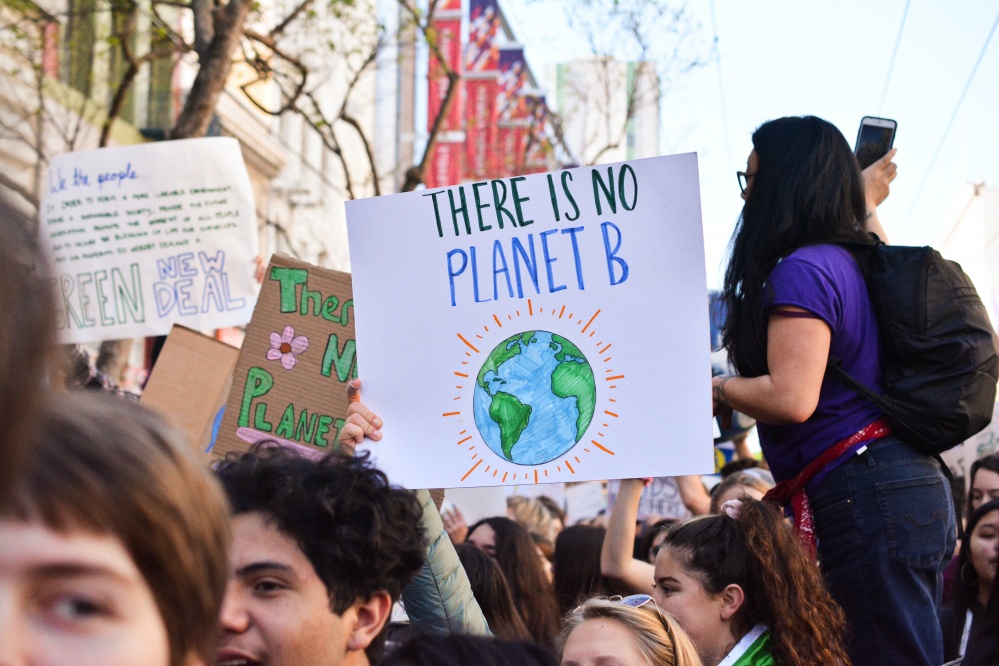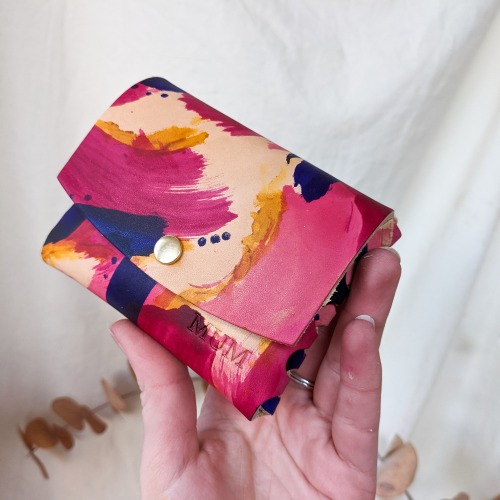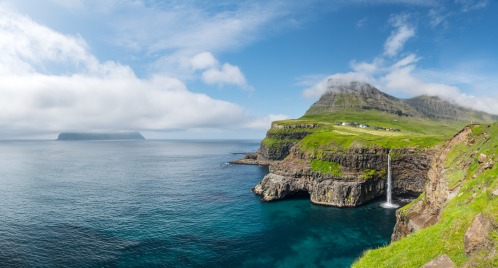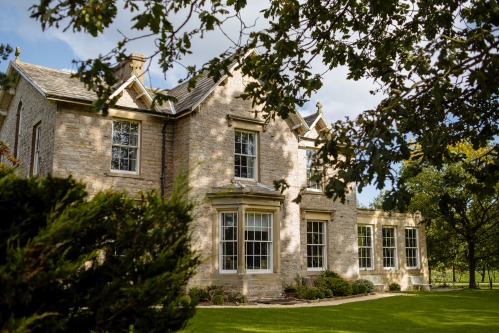Piers Torday is Inspiring The Next Generation With His Powerful Planet-Saving Stories

Award-winning and bestselling writer Piers Torday found inspiration for his children’s books in the Yorkshire countryside
The power that children’s stories have shouldn’t be underestimated. Piers uses that power to help protect the future of the planet today, and he knows all too well how stories can inspire children – because he was once an inspired child.
Growing up in the 1970s, his childhood was surrounded by farming, and there were potentially more animals than people. His dad, the late Paul Torday (author of the bestselling novel Salmon Fishing in the Yemen), published his first novel at the age of 59, and was a successful businessman.
Piers got into reading at an early age, likely spurred on by spending his early years surrounded by books in the bookshop his mum opened (Toad Hall Books, named after Toad Hall in The Wind In The Willows). He has fond memories from those days which he reveals to us in a phone call. ‘I was very lucky to grow up in this world of children’s books, and I inevitably started to write my own. I wrote a little comic that was entered for a competition in the local newspaper there – and I won the competition. That gave me the idea that maybe I could tell stories but it took me a long time to work out what I wanted to write about and how I was going to tell them.’
But the inspiration Piers needed was all around him. ‘I grew up among some of the most beautiful, unspoilt, undeveloped countryside in Britain in a landscape without the internet,’ he adds. ‘My brother Nick and I used to play and make up our own games, characters and stories to amuse ourselves and that’s, I suppose, where it all started.’
Before publishing his award-winning novels, Piers had a career in theatre and TV and he’s incredibly proud of the work he did at the Edinburgh Festival. ‘We produced so many amazing shows, some of which transferred to the West End and toured. But the biggest privilege was to witness the beginning of so many people’s careers,’ he says. ‘We produced a play by Terrence McNally called Corpus Christi which suggested that Jesus and Judas had a love affair. It caused a hullabaloo and I had death threats but I’m proud, not to have upset people, but because it made a piece of art that got people talking.’
Both the North’s beauty and hardships have shaped Piers’ writing career today. ‘I think some people come up here and find it a challenge,’ he reflects. ‘Especially in the winter when it can be pretty tough. The wind howls across the moors, it can be bitter, with heavy rainfall and, when I was growing up, every winter I seem to remember a lot of snow. In fact, I remember being completely snowed in and unable to go to school or out of the house. Especially on the higher ground, it’s quite exposed and it can feel a bit bleak but I’ve always loved that. In the spring and summer it becomes beautiful. What I really enjoyed is that you always got the full gamut of nature and its beauty.’
Piers later moved to London and, while he loves the city, he says ‘it’s very urban, so your horizon shrinks and there’s no more big skies.’ So, when he was struggling to write, he took himself back to the countryside and on a creative writing course at The Ted Hughes Arvon Centre – an 18th-century millowner’s house in West Yorkshire, which once belonged to poet Ted Hughes. ‘It’s an amazing big stone house on the moors and I walked a lot along those moors,’ he tells us. ‘But because it wasn’t going back home (where you get sucked into family life), but brought back childhood memories, sensations and emotions, it was the trigger point.’
From one pandemic to another, Piers’ Wild trilogy was inspired by the first of this century (2001) which seems a distant memory now – foot-and-mouth disease. ‘It caused absolute devastation to the farming industry,’ Piers says. ‘The quarantines, the restrictions on movement – they were all precursors to what Covid has been for us. The one thing I never forgot was that terrible image we all saw on the news of those piles of dead sheep and cows burning. It really stuck in my mind. Over the decade that followed we became more and more aware of the mass extinction going on and that we’ve lost 60 percent of wildlife on this planet in the last 50 years. I’d grown up with this amazing access to wildlife and the countryside, so the idea that this was disappearing broke my heart.’
That’s why Piers decided to write a story about what would happen if there were no animals left following a virus breakout, based on foot-and-mouth, but which wipes out not just cattle and sheep – but every animal. A little boy discovers he can talk to them – ‘because which child hasn’t dreamt of being able to talk to their dog or their cat or the rabbit in the garden?’ Piers adds – and the boy manages to save them.
The Last Wild was published in 2013 and was nominated for the Carnegie Award, shortlisted for the Waterstones Children’s Book Prize, and won both Stockton Children’s Book of the Year and Calderdale Children’s Book of the Year. The book has been published in 14 other countries, including the USA and China. In 2014, the sequel, The Dark Wild, came out, and won the Guardian Children’s Fiction Prize. The third and final book in the series, The Wild Beyond, was published in 2015 and was shortlisted for Islington Book of the Year. After the great success of the three books, Piers is rightly proud of them, and in each book Piers shares a different aspect of climate change – from the impact on the countryside to the cities and the ocean.
His new release, The Wild Before, is a prequel to the bestselling trilogy, exploring the topical themes of environmental awareness, friendship, and hope. Piers describes it as ‘a love song to the British countryside.’ A pure white calf is born on a muddy farm by the light of a silver moon. It’s a legendary Mooncalf, whose arrival has been foretold. According to a rumour passed down from animal to animal, if the calf dies, terrible things will happen – rising seas, a plague and skies raining down fire. So Little Hare vows to persuade all the animals to protect Mooncalf, whatever the cost. But that’s easier said than done.
‘You can never say enough about climate change but I felt that I’d said all I had to say in that trilogy and then, a couple of years ago, when Greta Thunberg appeared, that really turned the dial up again,’ Piers explains. ‘This young person had the bravery to speak to world leaders and make them listen and she inspired other children to start taking action to protect their own futures. Like so many were, I was inspired by that; not just by how she spoke, but the message she communicated which was that we’re now in the “end game” – we’re in the waiting room for all the worries people have had about climate change (extreme weather events, food shortages) beginning to happen. For children, I didn’t want to make them anymore worried or anxious than they need to be, but to create a book about the reservoirs of hope and resilience that we’re all going to need to get through this, because I absolutely believe we can and we will. It’s to inspire them to have faith.’
When we ask Piers to reflect on his writing highlights, he has plenty to tell us. ‘My first book was a huge achievement,’ he says. ‘Everyone says that about their very first book, that you can’t quite believe it’s actually happened, but it’s true. Then I won the Guardian Children’s Fiction Prize for The Dark Wild which was just immense. I never expected it. At school, I was always the person that came third; I always did well but never came top of the class and I never won anything. I wasn’t in the mindset of winning so that was really nice. Another huge thrill was adapting Box of Delights, a book and a TV programme that I was obsessed with as a child but it had never been done on stage before. It was a world-stage premiere and I was very nervous because it’s an impossible play to do (with things like flying cars, people walking through paintings and magical phoenixes) but we managed it on a budget. It’s also hard because so many people love the book and you’re aware that you’re dealing with their memories and childhood – but it went down really well.’
Another highlight for Piers was carrying on his dad’s legacy. After Paul passed away, Piers discovered that he had an unfinished book on his laptop called The Death of an Owl, so he completed the novel in honour of his dad. ‘Being able to get permission from the rest of my family and his agents to finish it was was a lovely way to connect with him,’ Piers says. ‘I write for children; I don’t write adults fiction and I’m not half as good a writer as he was but it was a huge privilege to be able to do that for him.’ Piers believes in human resilience and human resourcefulness, and will continue to write to engage with the climate crisis. ‘The great thing is that children are becoming more aware and generally children of that age read more than any other age group because it’s part of their education. There’s a huge range of books aimed at them and they still (even with all the school work and distractions on the internet) have an enormous amount of time. That’s why the children’s book market has just exploded in the last decade,’ Piers explains. ‘Their imaginations are developing and forming and there are so many books about nature at the moment by so many wonderful writers.
‘The thing is, you only need one Greta. If just one child reads the books and says, I’m going to make this my life’s work, then, as far as I’m concerned, mission accomplished. For every child who reads a book and thinks, I’m going to do a project at school about litter picking and get my class to care more about the environment, I’m going to write a letter to my local council and ask them to stop selling plastic water bottles in the leisure centre, I’m going to ask my parents whether they want to keep eating meat – whatever it is, those small things collectivelymake a huge difference. It’s a win-win situation because it keeps the conversation going either way. I’m not an activist, I’m not a scientist, all I can do is tell stories, but I believe they have a part to play in the bigger eco-system of how we address this crisis.’ Looking to the future, Piers can see progress being made, but acknowledges that, unless governments take action together, it’s going to be tricky. ‘We have to brace ourselves for some shocks and some big changes to the way we live our lives but I think we can endure them – but it’s going to be a bumpy ride,’ he says. ‘I hope my stories help children through that bumpiness.’







